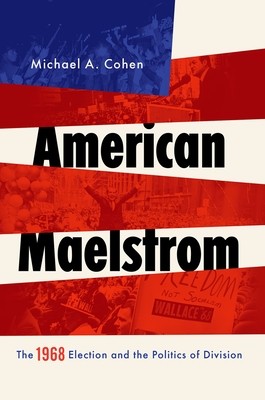
- We will send in 10–14 business days.
- Author: Michael A Cohen
- Publisher: Oxford University Press, USA
- ISBN-10: 0190878037
- ISBN-13: 9780190878030
- Format: 14.7 x 22.9 x 3.3 cm, softcover
- Language: English
- SAVE -10% with code: EXTRA
Reviews
Description
In his presidential inaugural address of January 1965, Lyndon B. Johnson offered an uplifting vision for America, one that would end poverty and racial injustice. Elected in a landslide over the conservative Republican Barry Goldwater and bolstered by the so-called liberal consensus, economic
prosperity, and a strong wave of nostalgia for his martyred predecessor, John F. Kennedy, Johnson announced the most ambitious government agenda in decades. Three years later, everything had changed. Johnson's approval ratings had plummeted; the liberal consensus was shattered; the war in Vietnam
splintered the nation; and the politics of civil rights had created a fierce white backlash. A report from the National Committee for an Effective Congress warned of a "national nervous breakdown."
the working-class white backlash; Robert Kennedy took on the mantle of his slain brother. Entangled in Vietnam, Johnson, stunningly, opted not to run again, scrambling the odds. On the Republican side, 1968 saw the vindication of Richard Nixon, who outhustled Nelson Rockefeller, Ronald Reagan, and
George Romney by navigating between the conservative and moderate wings of the Republican Party. The assassinations of the first Martin Luther King, Jr., and then Kennedy, seemed to push the country to the brink of chaos, a chaos reflected in the Democratic Convention in Chicago, a televised horror
show. Vice President Hubert Humphrey emerged as the nominee, and, finally liberating himself from Johnson's grip, nearly overcame the lead long enjoyed by Nixon, who, by exploiting division and channeling the national yearning for order, would be the last man standing. In American Maelstrom, Michael A. Cohen captures the full drama of this watershed election, establishing 1968 as the hinge between the decline of political liberalism, the ascendancy of conservative populism, and the rise of anti-governmental attitudes that continue to dominate the nation's
political discourse. In this sweeping and immersive book, equal parts compelling analysis and thrilling narrative, Cohen takes us to the very source of our modern politics of division.
- Author: Michael A Cohen
- Publisher: Oxford University Press, USA
- ISBN-10: 0190878037
- ISBN-13: 9780190878030
- Format: 14.7 x 22.9 x 3.3 cm, softcover
- Language: English English
In his presidential inaugural address of January 1965, Lyndon B. Johnson offered an uplifting vision for America, one that would end poverty and racial injustice. Elected in a landslide over the conservative Republican Barry Goldwater and bolstered by the so-called liberal consensus, economic
prosperity, and a strong wave of nostalgia for his martyred predecessor, John F. Kennedy, Johnson announced the most ambitious government agenda in decades. Three years later, everything had changed. Johnson's approval ratings had plummeted; the liberal consensus was shattered; the war in Vietnam
splintered the nation; and the politics of civil rights had created a fierce white backlash. A report from the National Committee for an Effective Congress warned of a "national nervous breakdown."
the working-class white backlash; Robert Kennedy took on the mantle of his slain brother. Entangled in Vietnam, Johnson, stunningly, opted not to run again, scrambling the odds. On the Republican side, 1968 saw the vindication of Richard Nixon, who outhustled Nelson Rockefeller, Ronald Reagan, and
George Romney by navigating between the conservative and moderate wings of the Republican Party. The assassinations of the first Martin Luther King, Jr., and then Kennedy, seemed to push the country to the brink of chaos, a chaos reflected in the Democratic Convention in Chicago, a televised horror
show. Vice President Hubert Humphrey emerged as the nominee, and, finally liberating himself from Johnson's grip, nearly overcame the lead long enjoyed by Nixon, who, by exploiting division and channeling the national yearning for order, would be the last man standing. In American Maelstrom, Michael A. Cohen captures the full drama of this watershed election, establishing 1968 as the hinge between the decline of political liberalism, the ascendancy of conservative populism, and the rise of anti-governmental attitudes that continue to dominate the nation's
political discourse. In this sweeping and immersive book, equal parts compelling analysis and thrilling narrative, Cohen takes us to the very source of our modern politics of division.


Reviews